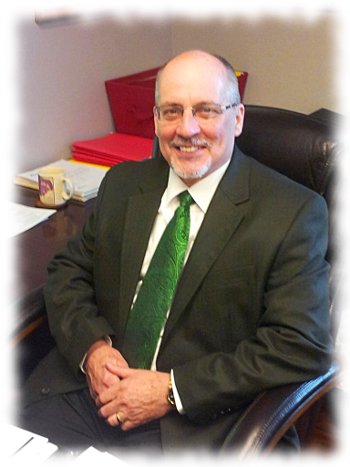Lord, Save Us by Our Ears
by Pastor Edwin Lehmann on August 1, 2018 in 18-23, Matthew 13:1-9
Sermon for Eighth Sunday after Pentecost July 15, 2018
Text: Matthew 13:1-9, 18-23 ILCW – A 18:2076
Theme: Lord, Save Us by Our Ears
Close your eyes a minute and think. When I say farm, what do you see? In my mind’s eye I see the farms of my boyhood friends in Wisconsin. I see rolling fields of corn, soybeans, and oats stretching off into the distance, fenced with a couple strands of wire. I see big red barns and tall silos. I see large farm machinery that opens furrows in the ground, plants seed, fertilizes, and then covers up the furrows. Do you see something similar?
The farm I wish to tell you about is not like that at all. This is a small, rocky farm near a village on a hillside. Through the middle of the field runs a road, not a big one – no shoulders, no fence, just a ribbon of hard-packed dirt, stomped down by hundreds of feet passing over it, a road on which people walk, and, at times, a donkey, a horse, or even a camel.
The farmer has no fancy machinery to help him grow his crops – a wooden plow, two oxen, and a sickle to cut the grain when it is ripe. But now it’s planting time. He sows his seed by hand. He has already run his ox-drawn plow and cut furrows in the field. Now he strides across the furrows. Hanging at his side is a big bag of grain. He dips his hand into the bag, pulls out a fist full of seed, and, with a skill acquired over many years of practice, he flings the seed into the air. It sails in the wind and comes to rest in a variety of places.
What kind of a crop can he expect? That depends on the type of soil in which the seed comes to rest, for the seed, all by itself, contains the power to grow. There is nothing wrong with the seed. But the ground that receives it is of different kinds.
Some seed falls on the road where passers-by stomp it into the hardened surface. If it is not a busy day on the road, the birds swoop down, snatch the seed, and eat it all up.
Some seed falls where there is only a little soil on top of hard rock. The seed starts to grow quickly for the thin soil is warm. But the rock below keeps the plant’s roots from sinking down to moisture. When the weather gets hot, the tender plants wither and soon die away because their shallow roots can’t find enough water.
Some seed falls on spots that look fertile enough, but, in those places, last summer’s thistles already dropped their seeds. Wheat and thistles grow together. But the weeds grow faster, and the thistles are more vigorous than the grain. They shut out the sunlight and take away the food and water that the good plants need. Soon the wheat is choked out by the weeds and dies.
Crop failures of 3 types – but the farmer is not discouraged, even though he intends that all the seed should grow. He knows that some of the seed will fall on good ground and will produce grain. Here he will get a harvest, sometimes 30 times, sometimes 60 times, sometimes even 100 times as much as he sowed. The crop isn’t the same everywhere, but it always produces something in the good soil.
This was the sermon that Jesus preached as he sat in the back of a boat on the Sea of Galilee and taught God’s Word to a crowd of people who stood on the shore. It is as different from the sermons you and I are used to hearing as the farm back then is different from the farms we know today. His sermon is called a parable.
A parable is an earthly story which has a heavenly meaning. It doesn’t usually tell us about heaven as we think of it above us, but it helps us understand spiritual truths that we need to know now, here in this world, so that we believe, and some day get to heaven.
Jesus’ sermons were different from the sermons that people in His day usually heard. “Never did any man speak like this man!” they said. “He is so different from our regular preachers! He speaks with authority, as if His words come directly from God!”
Yes, this sermon was different and fell strangely on their ears as it does on ours. Even his closest followers were puzzled by it. The farm, the farmer, the hard road, the thistles, the rocks, the harvest – all of these were a part of their everyday life. But what did it mean?
Later, when the crowd had left, Jesus’ disciples asked Him what the story meant. They knew that He was trying to teach them something about God and life in God’s Kingdom…but what?
Jesus said, “The seed is the Word of God.” It is planted wherever and whenever it is taught and preached. Those who hear the Word of God are like the different types of ground on which the seed falls. The failure to receive the seed does not lie in the Word, but in the soil, in the hearts of people themselves. Through their own fault they become the wrong kinds of hearers.
Some people are like the hard ground. They hear God’s Word but don’t understand it and don’t care. Oh, to be sure, such people can understand the facts that God’s Word tells us. They hear and can understand that God the Father sent His only Son Jesus into the world to redeem all men from their sin. They hear and can understand that Jesus became a man, lived among the Jews, preached the Good News of forgiveness and life only in Him, performed miracles, was crucified under Pontius Pilate, but rose again to life on Easter, that He ascended into heaven, and now sits at God’s right hand. Such hearers can understand that.
But they fail to admit their sin and confess: “Jesus lived and died and rose again for me, a lost sinner.” Why do they fail to understand that? Jesus explains, “Because they let the devil come and snatch away the good seed from their hearts, just like the birds came and gobbled up the good seed that lay on the hard road.”
I guess we could call them lazy or indifferent – hard-hearted hearers who soon forget or object to what they hear. The sermon never gets in. It’s in one ear and out the other.
Others who receive God’s Word are like the thin soil on rocky ground. For a little while they gladly believe it for they see its blessings. But they don’t let the Word sink in very deeply. So, when they have troubles, temptations, or the heat of suffering comes because of their faith, they quickly give up and say, “It costs too much to be a Christian!” They are not willing to accept that God loves them enough to send unpleasant and painful things into their lives to give them needed discipline and keep them as His dear children. They refuse to see that God makes troubles serve for growth in faith and love toward Him. So, when troubles arise, they forget how much God loves them in Jesus. I guess we could call them shallow or superficial hearers – fair-weather Christians.
The thistle-covered places are like the hearts of those who hear the Word but are too busy or too worried about things they want. They are so absorbed by the pleasures of this life that the Word is smothered by their cares, their money, and their fun. That is so sad because the Lord Jesus promises, “I will provide all your needs. Cast all your cares on me; I will care for you. Delight yourself in the Lord and He will give you the desires of your heart. You will not want for anything” (1Pt.5:7; Ps.37; Ps.23). But worries and worldly desires choke out His promises. I guess we could call them worldly-minded – materialistic hearers with stubble-filled hearts.
Finally, Jesus talked about seed that fell into good ground. It stands for people who hear God’s message of loving forgiveness in Christ, think about it and rejoice in confessing their sin and trusting in the Savior’s work on the cross. They keep on growing in faith by hearing the Gospel. In them the Word produces blessings: “love, joy, peace, patience, kindness, goodness, faithfulness, gentleness, self-control” (Ga.5:22) all by grace – God’s undeserved love.
Do you have ears? What kind of hearer are you when you come to church on Sunday? Sadly, there are times we can be all four, for all of us are weak and sinful in ourselves. But Jesus tells this story so that we might look to Him for help, who is ever willing to give it. “Come to me,” He invites, “and I will help and give you rest.”
So, we pray: “Lord, Save Us by Our Ears. Give us good ears to hear Your Word and fertile faith-filled hearts to daily receive it. And when we take our accustomed pew each Sunday in church, turn our hearts heavenward to sing with the hymn-writer:
Here Thy praise is gladly chanted, Here Thy seed is duly sown;
Let my soul, where it is planted,
Bring forth precious sheaves alone.
So that all I hear may be Fruitful unto life in me.
Speak, O God, and I will hear Thee, Let Thy will be done indeed;
May I undisturbed draw near Thee
While Thou dost Thy people feed.
Here of life the fountain flows, Here is balm for all our woes.

